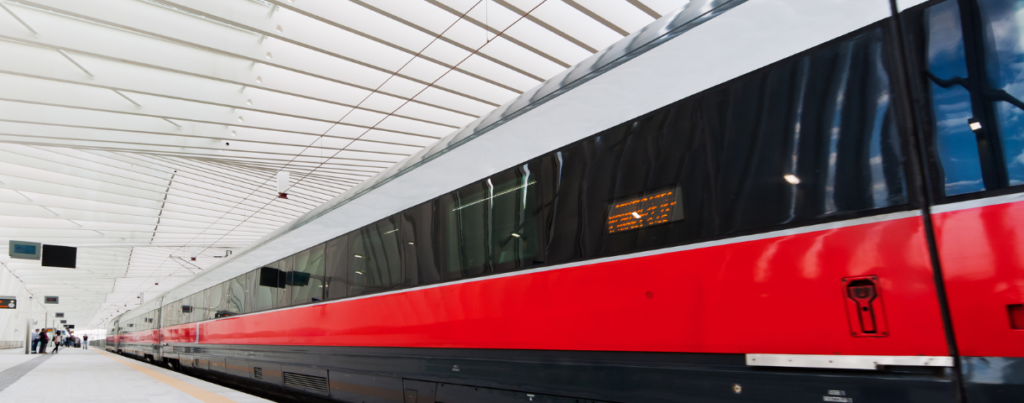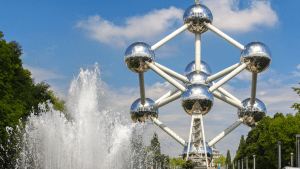Eurostar, the premier high-speed rail network connecting France, Belgium, the Netherlands, Germany, and the UK, has set an ambitious target to facilitate 30 million passenger journeys sustainably by 2030, all while significantly lowering carbon emissions. This goal was detailed in Eurostar’s first sustainability report, which outlines a comprehensive strategy focused on three key areas: reducing environmental impact, integrating circularity, and attracting more passengers to its low-carbon services.
Sustainability Strategy Overview
Reducing Environmental Impact
A cornerstone of Eurostar’s strategy is minimizing its environmental footprint by sourcing renewable energy and reducing overall energy consumption. Notable efforts include:
- Renewable Energy Initiatives: Eurostar aims to power its trains using 100% renewable energy by 2030. This ambitious target is being pursued through collaborations with partners and regulators. In February 2024, Eurostar signed a Memorandum of Understanding with Infrabel, Belgium’s railway infrastructure manager, to explore novel solar projects designed to power trains.
- Energy Efficiency Improvements: The focus is on optimizing energy requirements, ensuring the rail network operates more efficiently.
Integrating Circularity
Eurostar is committed to embedding circular economy principles throughout its value chain. This involves:
- Sustainable Sourcing: Every on-board dish is carefully curated with sustainability in mind, earning Eurostar a three-star rating from the Food Made Good Awards for its eco-friendly catering services.
- Resource Efficiency: Emphasizing minimal waste and efficient use of resources from production to end-of-life stages.
Attracting More Passengers
Increasing the attractiveness of its low-carbon service is another critical aspect of Eurostar’s strategy. Key initiatives include:
- Developing Open Hubs: Eurostar is expanding its network connectivity by developing “open hubs” to link its services with domestic networks and long-haul flights. This effort is exemplified by its air-rail partnership with KLM.
- Passenger Growth: By enhancing service appeal and accessibility, Eurostar aims to attract a larger number of passengers, making high-speed rail a preferred mode of sustainable travel.
Commitment to 100% Renewable Energy
Eurostar’s ambitious goal of achieving 100% renewable energy by 2030 is central to its sustainability vision. The company has joined the RE100 alliance, a global initiative of companies committed to sourcing all their energy from renewable sources. Eurostar CEO Gwendoline Cazenave highlights the significance of this commitment:
“This is a deliberately ambitious target. Eurostar wants to use its brand and commitment to accelerate change across the sector. To achieve our goal, we work closely with our partners in each of our markets and encourage regulatory support for the rapid deployment of new renewable energy projects.”
Leadership and Collaboration
Eurostar’s leadership in the sustainability space has been recognized by the RE100 alliance. Ollie Wilson, Head of RE100 at the Climate Group, commended Eurostar’s pioneering role:
“We’re delighted to welcome Eurostar to RE100, the first rail firm to join. Eurostar is setting a global example and leading the way on renewables powering our rail networks. Eurostar now has the opportunity to draw on a global network of over 400 companies as it works towards 30 million journeys a year powered by 100% renewable electricity by 2030.”
Current Progress and Future Plans
Eurostar has already made significant strides toward its renewable energy goals. In the Netherlands, Eurostar trains have been operating on 100% wind power since 2017, and in the UK, 40% of its energy needs were met by renewable sources by 2023. The recent agreement with Infrabel to study solar power solutions is a further step towards the 2030 target.
Conclusion
Eurostar’s comprehensive sustainability strategy and commitment to renewable energy illustrate its leadership in sustainable travel. By focusing on reducing environmental impact, integrating circular economy principles, and enhancing service appeal, Eurostar is well on its way to becoming a cornerstone of sustainable high-speed rail in Europe. With a target of 30 million passengers by 2030, Eurostar is not only aiming to expand its reach but also to ensure every journey contributes to a greener planet.
Sources: https://welovebrussels.org/2024/05/eurostar-pledges-to-power-trains-with-100-renewable-energy-by-2030/




